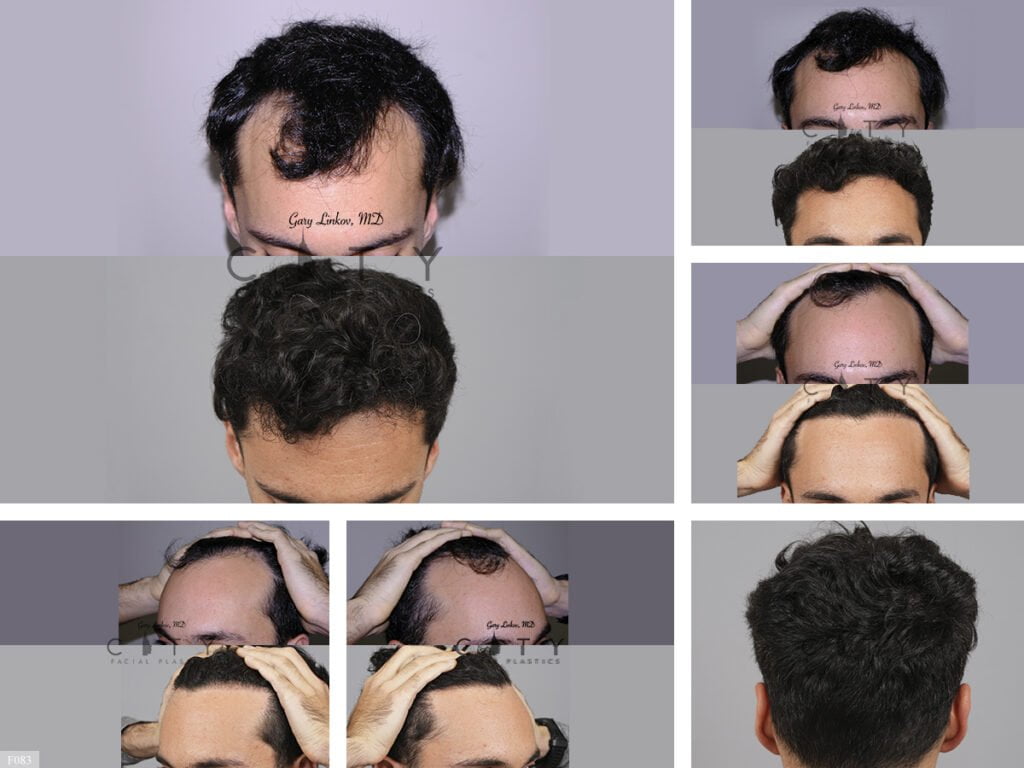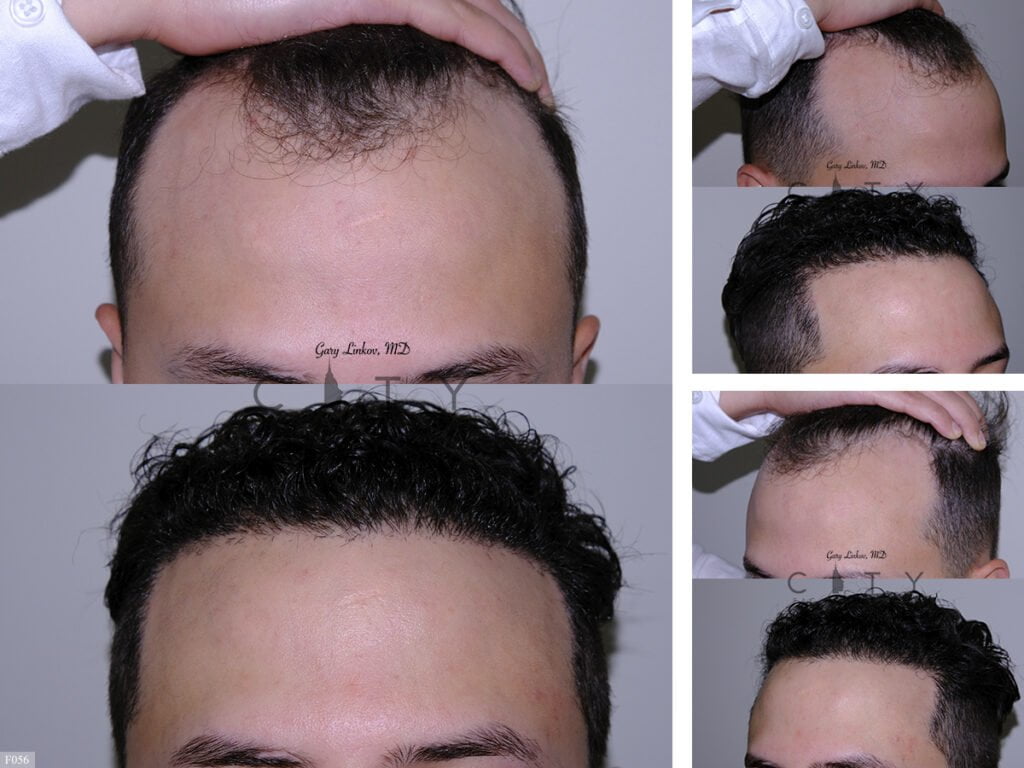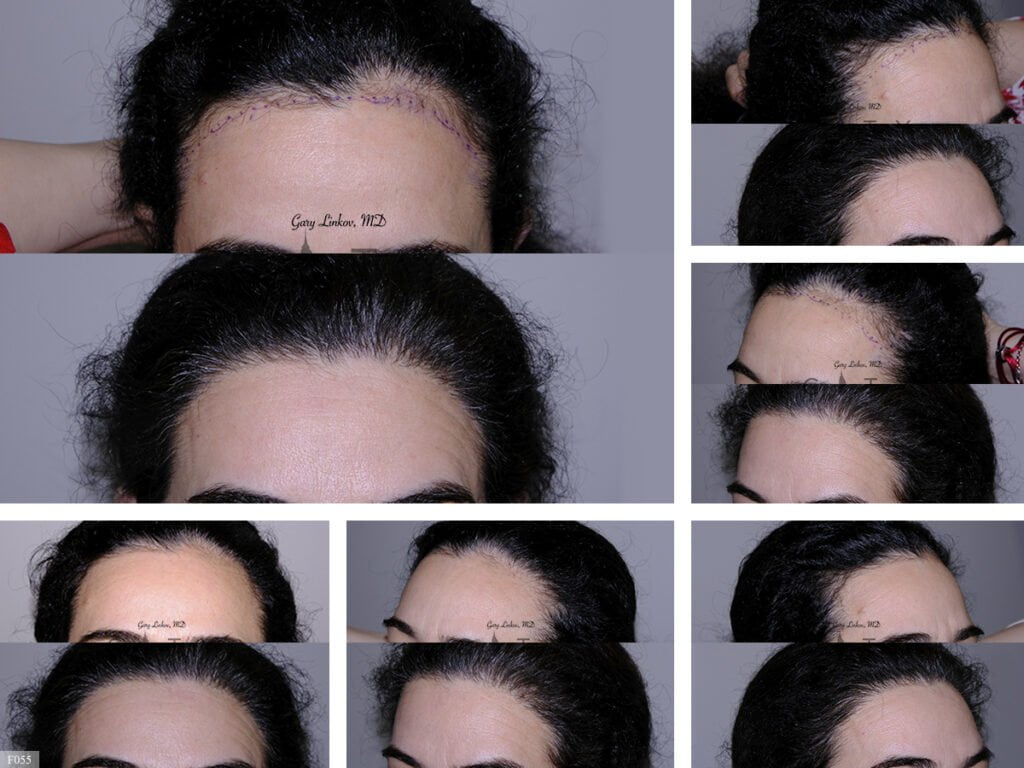Thyroid Imbalance
Your thyroid gland produces hormones that play a huge role in many of your major bodily functions, from regulating your body temperature and digestion to hair growth. When the vital hormones get out of balance due to an illness or improper nutrition, those bodily functions become affected.
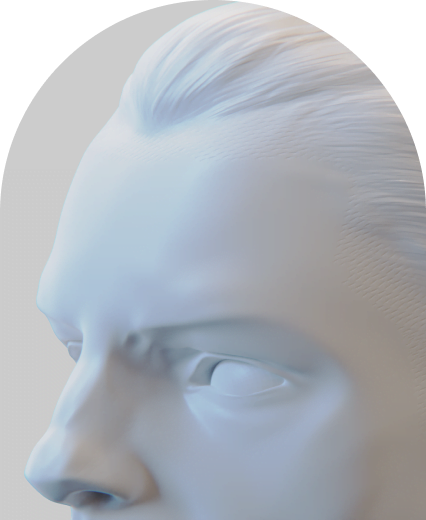
What Is a Thyroid Imbalance?
The thyroid is a small, butterfly-shaped gland just under the skin at the front of your neck, at your throat. A thyroid imbalance is a condition caused by the production of too much or too little of the thyroid hormones your body needs. Hyperthyroidism is a thyroid disease in which your thyroid gland overproduces hormones, while hypothyroidism refers to production of hormones that’s too low.
Thyroid hormones control multiple body functions, including your metabolism, body temperature, heart rate and digestion. Hair loss is one symptom associated with a thyroid disorder. Dr. Gary Linkov, a board certified hair surgeon at Manhattan’s Linkov Hair Surgery, addresses thyroid disease-related hair loss conditions. The hair restoration medical practice offers the latest hair loss treatment options, such as:

What Is Thyroid-Related Hair Loss?
Hair loss that’s related to a thyroid imbalance is a medical condition that causes thinning hair. This type of hair loss is called telogen effluvium, and it typically happens due to a thyroid imbalance, leading to your metabolism slowing down. Hypothyroidism-related hair loss and the need for hair growth from nutraceuticals usually occurs because:
- Low thyroid production affects your metabolism and how your body uses calories.
- Drugs that treat thyroid problems sometimes lead to thinning hair.
- Reduced metabolism impacts the rate at which your body uses oxygen and energy, leading to poor hair and nail growth.
- Alopecia areata is common with thyroid conditions, causing patches of hair loss and eventual baldness.
- A thyroid imbalance disrupts your hair growth cycle. As a result, your hair stays in the shedding stage, referred to as telogen, resulting in thinning across your scalp, but especially at the top.
- Polycystic ovary syndrome (PCOS), lupus and other autoimmune diseases are linked to thyroid imbalances that contribute to hair loss.
Hair loss resulting from a thyroid hormone imbalance develops gradually. Some common symptoms of thyroid-related hair loss that requires treatment with Nutrafol hair growth nutraceuticals include:
- Hair thinning all over your scalp
- Losing more hair when you take a shower or brush your hair
- Hair that appears uniformly sparse
- Hair loss that extends to your eyebrows, body hair and eyelashes
- Hair loss that becomes apparent several months after the onset of thyroid complications
- Hair loss that starts after you’ve started treatment for a thyroid disease, even if the drugs you’re taking for the thyroid disease aren’t associated with hair los
You may experience other symptoms of an overactive or underactive thyroid gland, such as trouble sleeping, weight loss, an enlarged thyroid gland, muscle weakness and tremors, anxiety, irritability and nervousness. If you’ve noticed diffuse hair loss over the last few months, seek an early diagnosis for thyroid disease. A definite diagnosis gives your NYC doctor sufficient time to prevent further hair loss and begin nutraceuticals for hair loss early.
Am I at Risk of Thyroid-Related Hair Loss?
Thyroid disease and related hair loss can affect anyone across all age ranges. The factors that may put you at risk of thyroid-related hair loss include:
- Hypothyroidism at birth
- Aging, particularly after menopause
- Gender, as women are more likely to be diagnosed with a thyroid condition
- A family history of thyroid disease
- Poor nutrition, such as a diet high in processed foods with high sugar and fat content
- Medication that’s high in iodine
- A previous history and treatment of a thyroid condition, including cancer
- Deficiency in nutrients such as zinc and vitamin D
At your initial consultation, your NYC hair restoration specialist diagnoses your thyroid disease and provides a nutraceuticals definition so you understand the treatment before it starts. You may discuss ways of managing the risk factors that lead to thyroid-related hair loss.
What’s the Treatment for Hair Loss Due to Thyroid Conditions?
Once you’ve been diagnosed with a thyroid disease or imbalance and you’ve noticed abnormal hair loss, it’s time to start treatment. The condition is reversible with the appropriate procedures. Hair loss caused by thyroid disorders is temporary, and the best hair restoration doctors in NYC have multiple techniques available to grow your hair back. Some hair loss treatment techniques include:
Take thyroid medications Your doctor first tests your thyroid hormone levels. After confirming the imbalance, the doctor prescribes medication to rebalance your hormones. Once the medicine begins working, your body replaces the lost hair. The medications treat the cause, not the symptoms.
Boost iron intake During your diagnostic tests, your doctor checks your iron levels. If they’re low, you may need to boost your iron intake through supplements. Low iron may be the cause of poor hair growth because of low ferritin levels. Ferritin is a blood protein that promotes hair growth.
Treat nutritional deficiencies Your New York City hair loss doctor may identify other nutritional deficiencies as a cause of your hair loss problems. Boosting levels of vitamins B7, zinc and copper — as well as vitamins C, E and A — help your hair grow. Nutraceuticals for hair loss, such as Nutrafol hair growth nutraceuticals, contain multiple compounds that aid hair growth.
Manage your stress levels Chronic stress is a major cause of losing your hair. Stress leads to overproduction of the hormone cortisol, which can lead to hair loss.
Get platelet-rich plasma (PRP) injections PRP treatment for hair loss is a long-term solution when you’ve lost hair due to hyperthyroidism. A thyroid hormone imbalance decreases the blood flow to your hair follicles, which affects hair growth. PRP adds growth factors into the hair follicles and stimulates hair restoration.
At our New York’s hair loss clinic, you meet Dr. Linkov, a leading hair transplant doctor. He addresses thyroid and other issues that may be aggravating your hair loss. The hair restoration practice has a patient-centered approach, which leads to better outcomes. The state-of-the-art facility comes equipped with the latest hair restoration techniques and the best hair transplant team in the city. Don’t wait; contact the top hair restoration professionals in Manhattan at Linkov Hair Surgery.
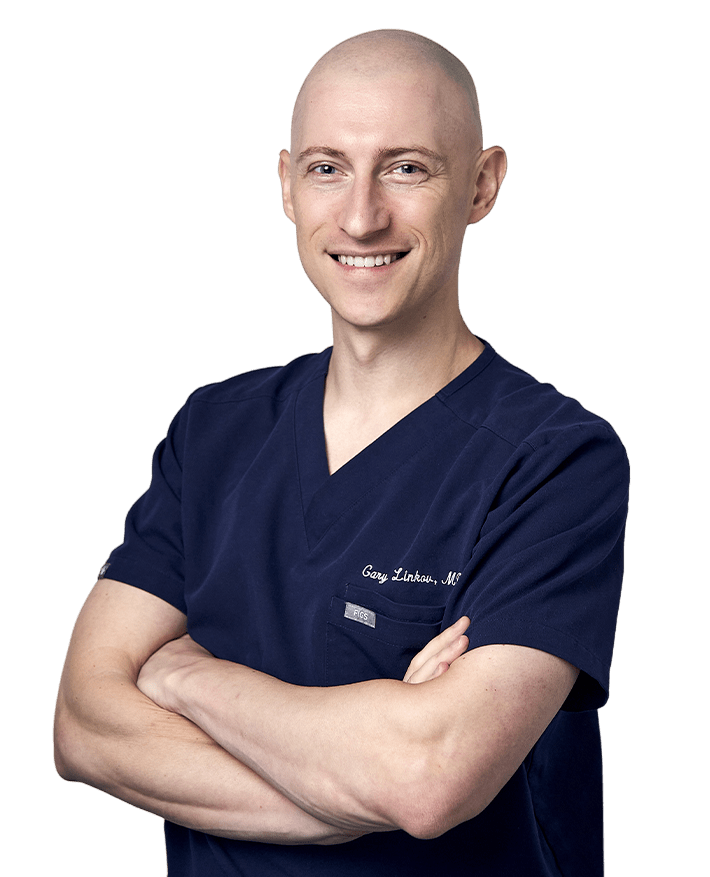
Dr. Gary Linkov is an experienced Ivy League-educated hair transplant surgeon. Having suffered from hair loss himself, he treats his patients with compassion using a multi-disciplinary approach based on the latest hair regrowth methodologies and technologies.
He has authored numerous peer-reviewed articles and book chapters, contributing to the field. Dr. Linkov’s expertise in hair transplant surgery has earned him recognition and made him a sought-after physician. He was featured on the Dr. Oz Show for his needleless PRP hair restoration procedure. USA Today ranks him among the top three plastic surgeons in the United States for reconstruction and natural-looking results.
Publications More about Dr. LinkovLinkov Hair Surgery
150 E 56th St, #1A
New York, NY 10022
(212) 970-9404


